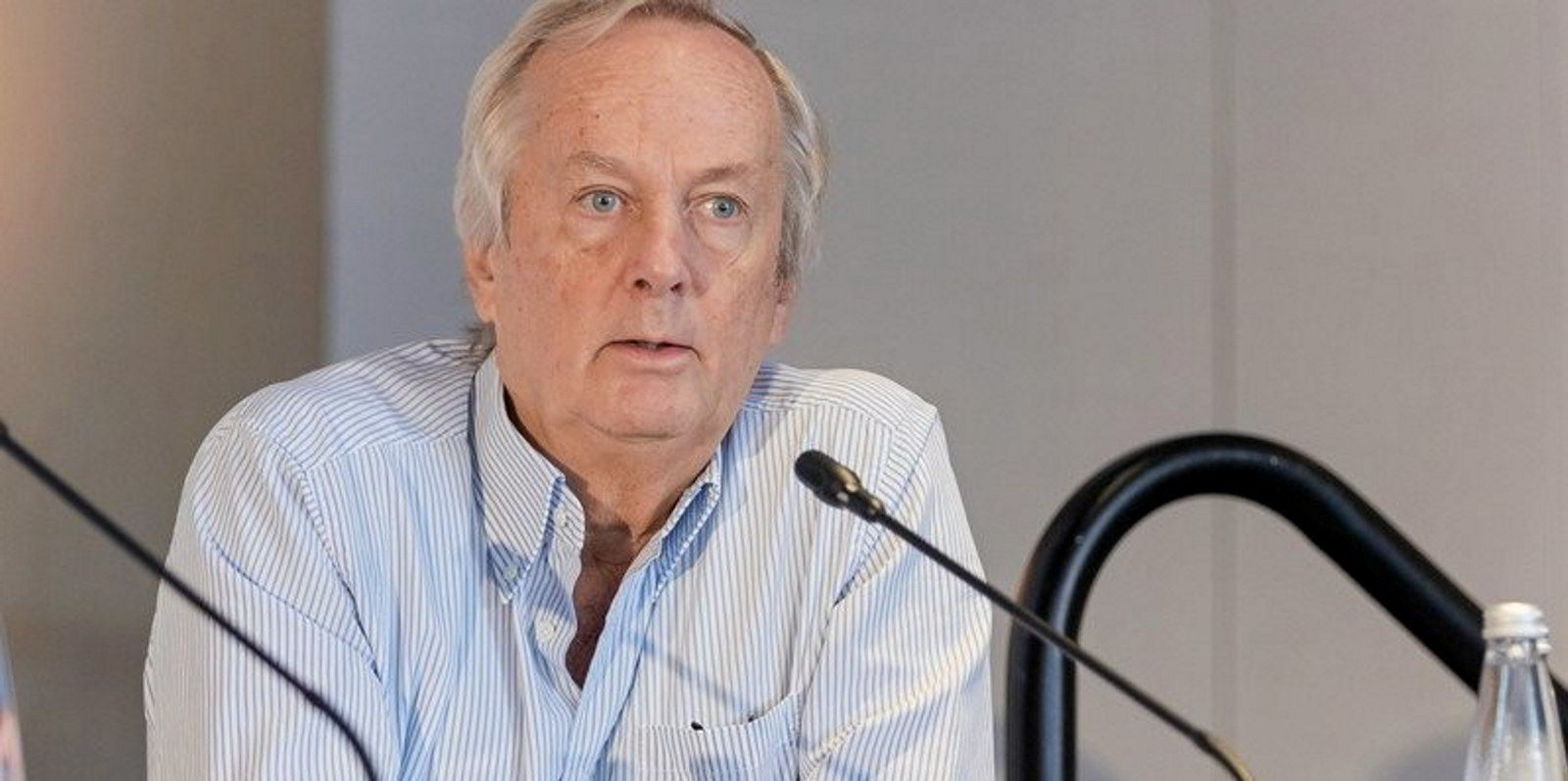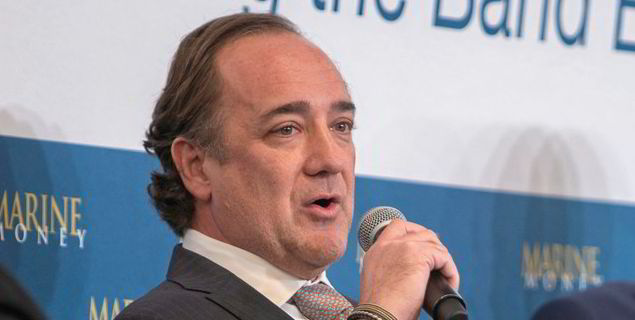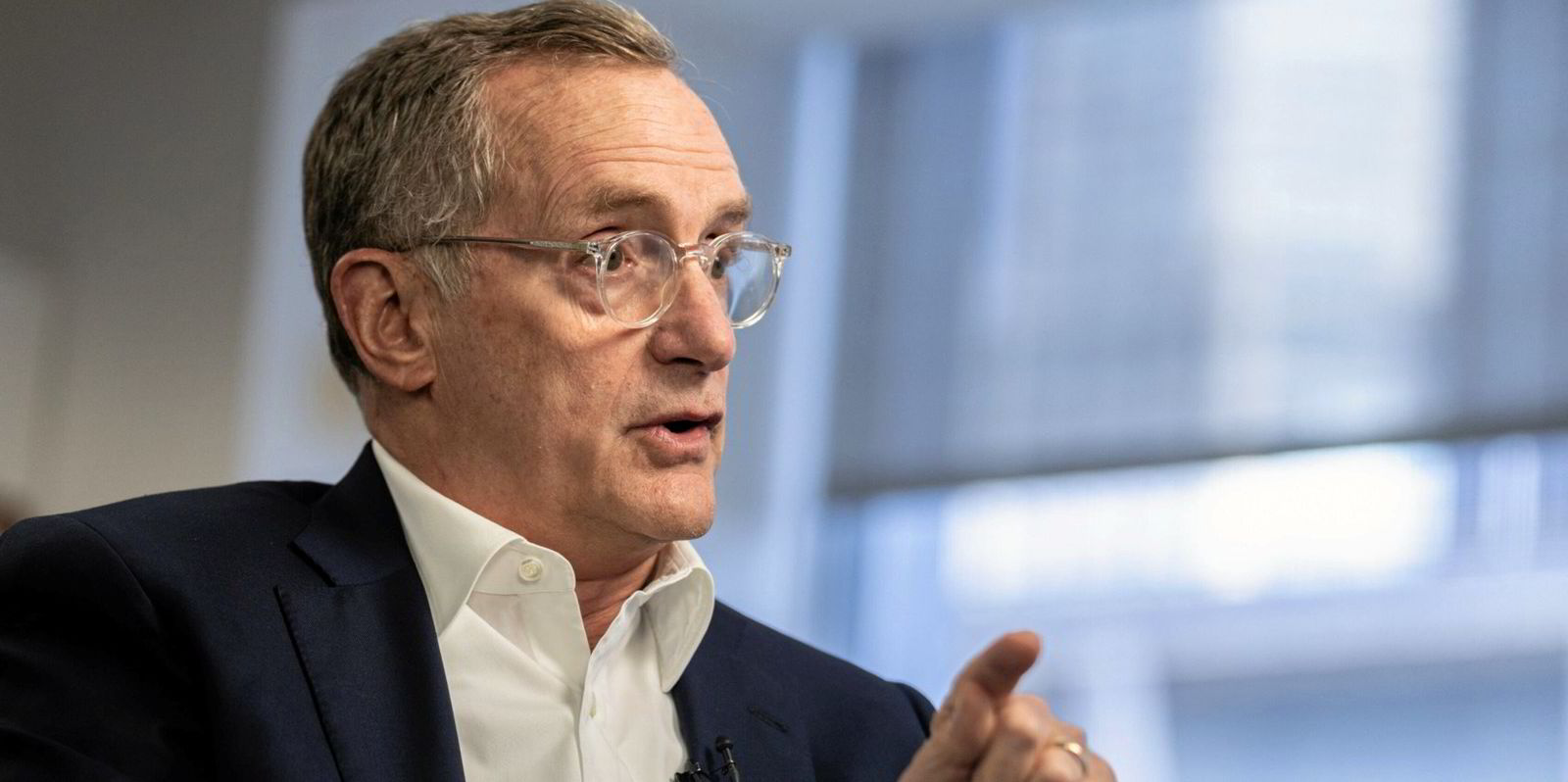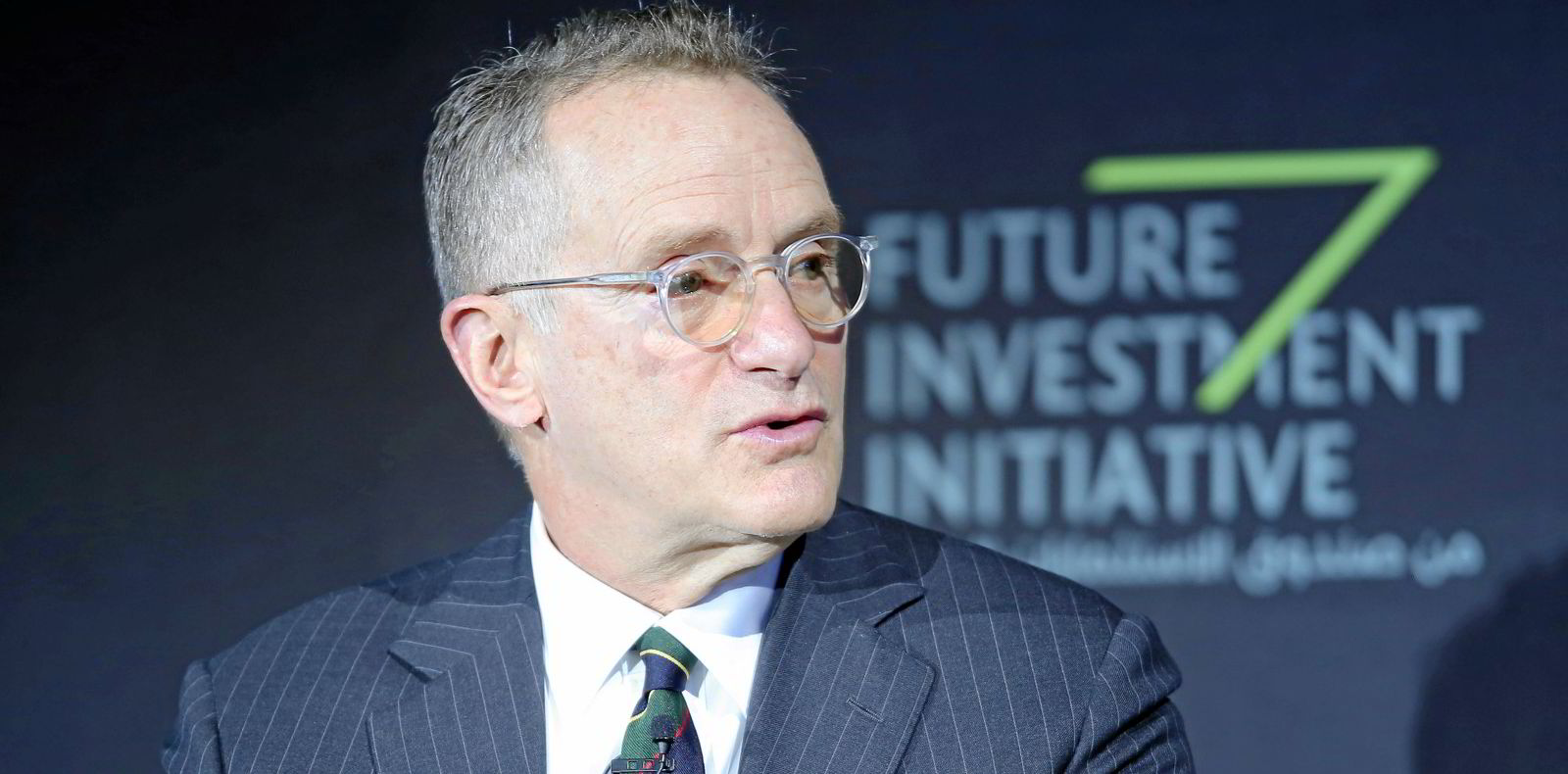The Christmas present came a few days late for Genco Shipping & Trading’s John Wobensmith, and now he is the latest chief executive to puzzle over whether it is a juicy orange or rather a lump of coal he has found in his stocking.
It was George Economou playing Santa Claus — or was it the Grinch? — in revealing a 5.4% stake in the New York-listed owner, continuing a trend of interest by the Greek magnate in public shares.
So far, it is only tanker owner Performance Shipping clearly in the crosshairs of an acquisitive Economou, as it tries to fend off a takeover tender and a US federal lawsuit aimed at removing current board and management.
Genco becomes the third public dry bulk owner to draw Economou’s investment dollars, in the wake of New York-listed OceanPal and Seanergy Maritime.
And so far the Greek has made no hostile moves towards any of the three, although his stake in each case was revealed on the form used by activists rather than passive investors.
Economou’s stake also was disclosed about six months after Genco’s closest peer as a public company — Connecticut neighbour Eagle Bulk Shipping — first received investment interest from Greek container ship owner Danaos and Cypriot bulker owner Castor Maritime.
Those overtures set in motion a series of events that effectively put Eagle Bulk in play. It culminated in last month’s approval of an acquisition offer from Petros Pappas’ Star Bulk Carriers.
Genco management declined to comment on Economou’s disclosure when approached by Streetwise this week.
Poison pill pending?
Still, we have some thoughts on what might happen next — and also on how Eagle and Genco have come to the point of a takeover offer for one, and at least the possibility of a play for the second.
In the near term, watch for Genco’s board to adopt an anti-takeover measure called a “poison pill” into its bylaws.
It may happen quickly, or it could be sitting on the shelf as Genco eyes what Economou will do next — the 5.4% stake is still modest, after all. But there is no question that leadership will have the defence at the ready.
It is what Eagle did after the Danaos-Castor developments, and it is what New York tanker owner International Seaways did after a 16% shares buildup by Norwegian mogul John Fredriksen in 2022.
Eagle’s current cap is a 15% limit — to be waived in Star’s case — while Seaways restricts any individual acquirer to a 20% holding. Seanergy has a “pill” as well. After Economou revealed his stake, it extended the safeguard from 2024 through to the end of 2026.
The Eagle and Seaways actions stanched further buildups while drawing cries of complaint from the activist investors.
They also lowered Seaways’ and Eagle’s standing in the corporate governance tables of analyst Michael Webber’s ESG “scorecard” — a reputational black eye for two companies used to ranking near the top.
Still, most feel that’s a small price to avoid a hostile coup, and Genco — Webber’s top-ranked owner for the past three years — likely would agree if Economou ratchets up his stake. The irony is that Economou routinely scored worst in Webber’s tables when his DryShips was public in New York.
While Genco weighs the timing of the medicine, it is probably also worth reflecting on the current trend of public-company investment by other shipowners and why some targets are more vulnerable than others.
Path in for private equity
Genco and Eagle both emerged from shipping’s “IPO wave” that struck New York between 2005 and 2007, a phenomenon that in particular spawned an entire peer group of listed dry bulk owners.
After the dry bulk market bubble burst around 2008, both owners eventually found themselves in Chapter 11 bankruptcy reorganisations in which distressed-asset investors in private equity gained large holdings.
Both underwent a second wave of financial restructuring around 2016 as the dry market unexpectedly hit record lows, with further bailouts needed from the “smart money” backers.
This left the private-equity names as major insider holders for years, and likely well beyond what they first reckoned in coming aboard.
It is only in recent years that the private funds have pulled off a retreat from their shipping bets — a process dubbed “Prexit” by Scorpio Group president Robert Bugbee — even as stronger markets allowed companies like Eagle and Genco to fortify their balance sheets.
As TradeWinds has reported, the combination of Oaktree Capital Management and GoldenTree Asset Management once owned about half of all Eagle shares.
GoldenTree finally sold the last of its 22.6% holding in October 2021. While Oaktree still held 28% moving into 2023, reported interest in the cache from Greek owners led Eagle to buy it preemptively in June.
Meanwhile, Genco was experiencing its own Prexit. Long-time backer Centerbridge Partners, which entered 2021 holding about 25% of shares, reduced this to less than 5% by October 2022.
Centerbridge followed upon sell-offs by Genco’s other key private-equity backers, Strategic Value Partners and Apollo Global Management, mostly within 2021.
The disposals largely were welcomed by company management and equity analysts, who reported that the positions represented an “overhang” on share price while limiting trading liquidity.
However, Eagle Bulk chief executive Gary Vogel pointed out at the time that the process was a double-edged sword: large private equity backers also had been a key source of support for such companies.
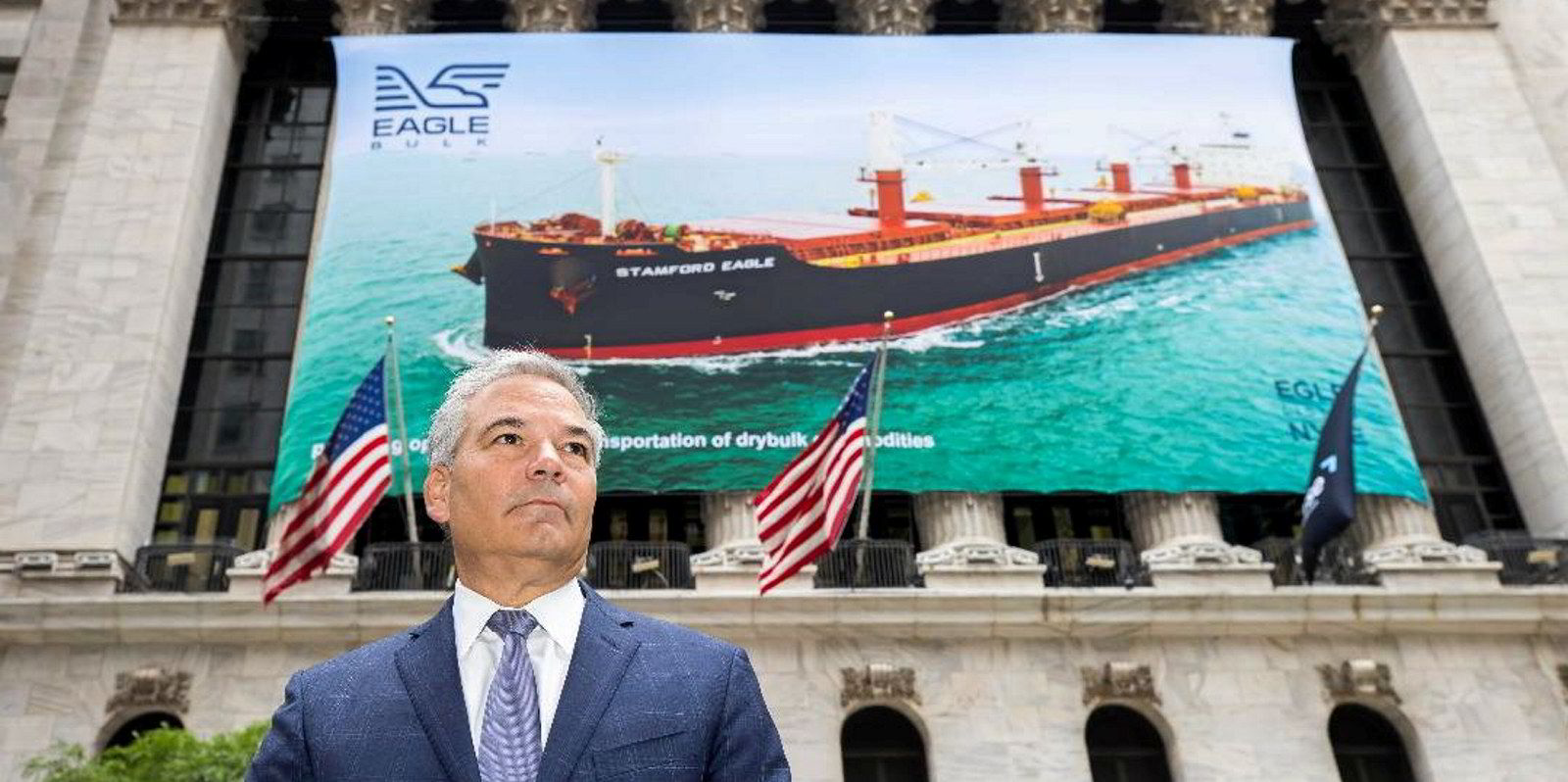
GoldenTree, for example, had in December 2020 backstopped a key overnight equity raise carried out by Eagle, buying 80% of the deal.
Unlike many of the listed Greek owners in dry bulk, management teams of Genco and Eagle own relatively small pieces of the stock: just over 2% collectively for all officers and directors at Genco, slightly less at Eagle.
Genco’s largest current investor is asset manager BlackRock, with just 7.1% of the company.
What is on Economou's mind?
So, with private-equity backers mostly out and interest by longer-term institutional investors at a low ebb, there are plenty of shares to be bought up, and at discount pricing, by “strategics” — another word for fellow shipowners.
“If you’re not a big owner like a Star Bulk, there just is no longer any anchor investor that would be a deterrent to the strategics entering one of these companies and trying to build a stake,” one finance source said.
It is hard to say just what Economou has in mind at Genco. But his request that the New York owner “provide … electronic copies of its form of director questionnaire with respect to proposed nominees for election to [Genco’s] board of directors”, does not sound the friendliest of holiday greetings.
Even if the investment is passive, Economou already has made some money. He bought more than half of his position between November and late December at below $15 per share. Genco stock has been on the rise in recent weeks and traded around $16.50 at Streetwise’s deadline.
If the Greek owner has his timing right in dry bulk, Genco may simply be a gift that keeps on giving.

